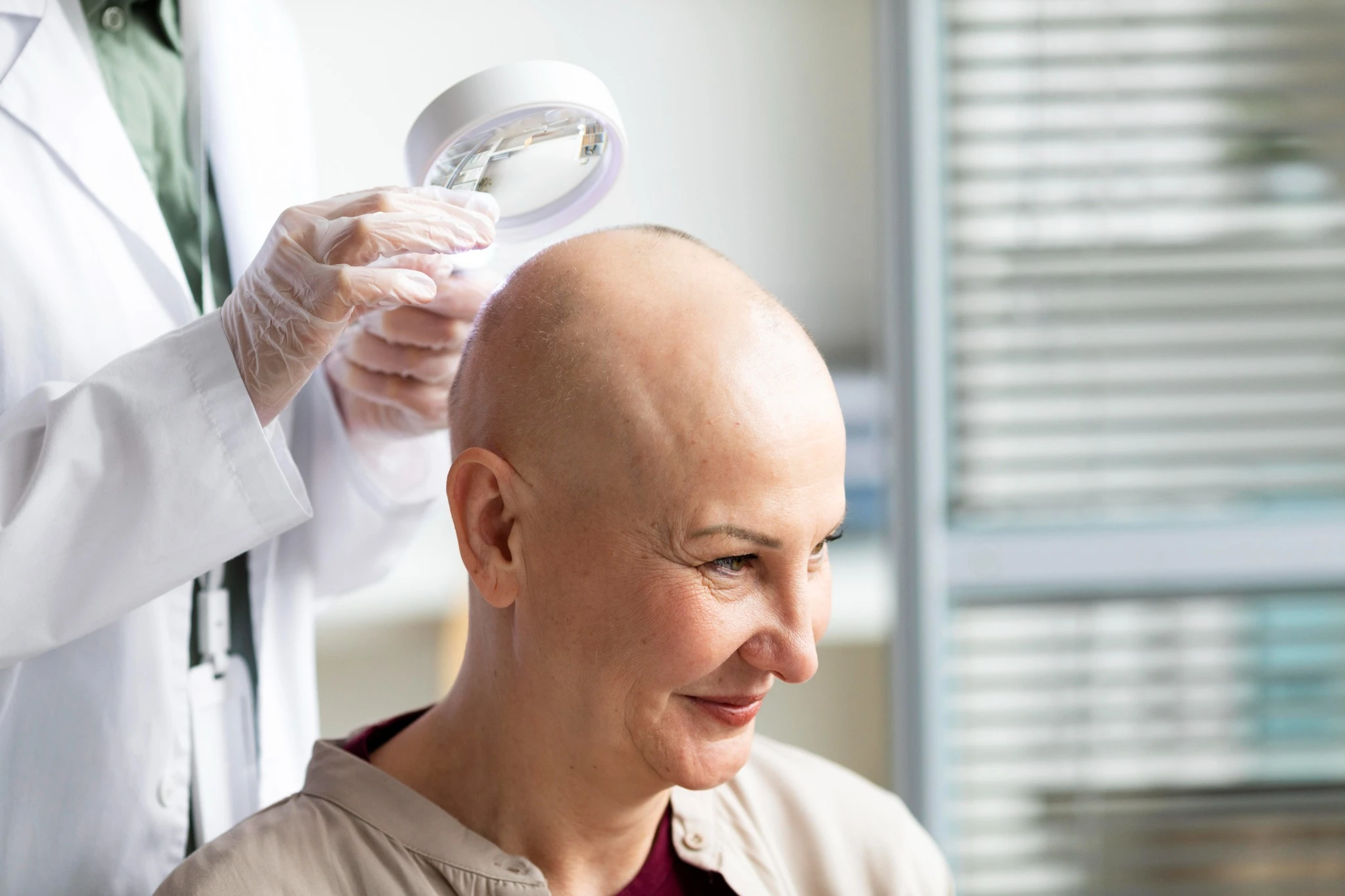Hair loss is a concern that affects people of all ages and genders. While occasional shedding is normal, persistent or patchy hair loss could be a sign of alopecia. In recent years, there has been growing awareness and demand for specialized alopecia treatment in Indore as individuals seek long-term and science-backed solutions to restore hair growth.
Let’s explore the causes, types, symptoms, and available treatments for alopecia in Indore, along with important things to know when choosing the right medical approach.
What Is Alopecia?
Alopecia refers to the partial or complete absence of hair from areas of the body where it typically grows—most commonly the scalp. The condition can appear suddenly or gradually and can be either temporary or permanent depending on the type.
There are different forms of alopecia, including:
-
Alopecia Areata: An autoimmune condition that causes patchy hair loss on the scalp or other parts of the body.
-
Androgenetic Alopecia: Commonly known as male-pattern or female-pattern baldness, it is caused by genetics and hormonal changes.
-
Telogen Effluvium: Triggered by stress, illness, or nutritional deficiencies, this condition causes temporary hair thinning.
-
Alopecia Totalis: Complete loss of hair on the scalp.
-
Alopecia Universalis: Complete loss of scalp and body hair is known as alopecia universalis.
Recognizing the type of alopecia is the first step toward choosing the correct treatment.
Symptoms to Watch For
The symptoms of alopecia vary based on its type and cause. However, common signs include:
-
Sudden or gradual hair thinning
-
Circular or patchy bald spots
-
Excessive hair shedding during brushing or washing
-
Loss of hair on eyebrows, eyelashes, or beard
-
Itching or burning sensation on the scalp (in some cases)
Early diagnosis improves the chances of successful treatment. Therefore, seeking expert consultation when you notice these signs is crucial.
What Causes Alopecia?
Multiple factors can lead to alopecia, including:
-
Genetic predisposition
-
Hormonal imbalances (e.g., PCOS, thyroid disorders)
-
Autoimmune diseases
-
Stress and trauma
-
Poor nutrition and vitamin deficiencies
-
Scalp infections or inflammation
-
Use of harsh chemical products
-
Side effects of medications
Identifying the root cause allows specialists to design a personalized treatment plan.
Diagnosis of Alopecia
In Indore, hair and skin specialists conduct comprehensive tests to determine the cause and type of alopecia. A typical diagnosis may involve:
-
Physical examination of scalp and hair
-
Medical history review
-
Pull test and trichoscopy
-
Blood tests to assess hormonal or nutritional issues
-
Scalp biopsy (if required)
Once the diagnosis is confirmed, a tailored alopecia treatment plan can begin.
Types of Alopecia Treatments in Indore
With advancements in dermatology and trichology, various treatments are available to address different kinds of alopecia. Here’s a look at the most common and effective methods:
1. Topical Medications
Minoxidil is often prescribed to stimulate hair growth and slow hair loss. It is suitable for androgenetic alopecia and sometimes for alopecia areata.
2. Oral Medications
In some cases, doctors recommend finasteride (for men) or other hormone-regulating drugs. These help block DHT—a hormone linked to hair loss.
3. PRP Therapy (Platelet-Rich Plasma)
This non-surgical treatment involves extracting the patient’s own blood, processing it to isolate platelets, and injecting it into the scalp. PRP promotes healing and natural hair regrowth.
4. Mesotherapy
Vitamins, amino acids, and other nutrients are injected into the scalp during mesotherapy. It rejuvenates hair follicles and improves circulation.
5. Low-Level Laser Therapy (LLLT)
Laser devices are used to stimulate blood flow and cellular activity in the scalp, encouraging hair growth in thinning areas.
6. Immunotherapy
Used in cases of alopecia areata, topical immunotherapy triggers a controlled allergic reaction that resets the immune system’s response to hair follicles.
7. Hair Transplant Surgery
For advanced stages of alopecia, surgical hair transplantation may be recommended. It involves relocating hair follicles from one part of the scalp to another.
8. Nutritional Counseling
Alopecia due to deficiencies is often reversible. Hair specialists may recommend dietary changes or supplements to support hair regeneration.
Benefits of Professional Alopecia Treatment in Indore
Choosing expert-led alopecia treatment in Indore offers several benefits:
-
Accurate diagnosis and personalized care
-
Non-invasive and surgical treatment options
-
Guidance on lifestyle, stress management, and diet
-
Long-term hair health monitoring
-
Treatment under medically supervised environments
Crucially, early treatment initiation improves results and may stop additional hair loss.
Home Care and Prevention Tips
While professional treatment is essential, supporting it with good daily habits enhances results. Here are some tips:
-
Avoid heat styling and harsh chemical treatments
-
Follow a protein-rich, balanced diet
-
Keep the scalp clean and hydrated
-
Practice stress-reducing activities like yoga or meditation
-
Use dermatologist-approved hair care products
-
Get regular scalp massages to boost circulation
FAQs: Alopecia Treatment in Indore
1. How long does alopecia treatment take to show results?
It depends on the type of alopecia and treatment used. Most patients notice visible changes within 3 to 6 months of consistent treatment.
2. Is alopecia curable?
Some forms of alopecia, like telogen effluvium, are reversible. Others, like androgenetic alopecia, can be managed effectively with ongoing treatment.
3. Are there any side effects to alopecia treatments?
Under a specialist’s supervision, the majority of non-invasive treatments have negligible or no negative effects. Always consult a certified expert before starting any medication.
4. Can alopecia be prevented?
While genetic alopecia can’t be entirely prevented, maintaining good scalp hygiene, managing stress, and eating a nutritious diet can reduce the risk of other types.
5. How should alopecia areata be treated?
Commonly utilized treatments include immunotherapy, PRP therapy, and corticosteroid injections. The choice depends on severity, age, and medical history.
Conclusion
Although it can be upsetting, alopecia is treatable. Thanks to modern dermatology and evidence-based treatments, people experiencing hair loss have real options to regain confidence and hair health. Whether the cause is genetic, autoimmune, or lifestyle-related, early diagnosis and professional care are key to success.
If you’re looking for personalized and advanced alopecia treatment in Indore, Dr. Meet’s Clinic provides a comprehensive range of solutions designed to address different types of alopecia with clinical expertise and care.




